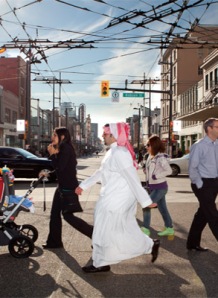 Reuters |
Reuters |
CAIRO – The evening Egypt’s army ousted Islamist President Mohamed Morsi, Christian lawyer Peter Naggar celebrated on Tahrir Square with even greater joy than when autocrat Hosni Mubarak fell from power two years ago.
Naggar remains deeply relieved that a year of Islamist rule ended a fortnight ago and yet, as the initial excitement fades, many members of his ancient Christian minority fear Morsi’s Muslim Brotherhood will not give up power so easily.
Neither is the Coptic Christian community under any illusion that the army’s installation of an interim government devoid of Islamists spells the end to its long-standing grievances, such as difficulties in getting state jobs, equality before the law and securing permits to build churches.
Still, Naggar is happy to see the back of the Brotherhood. “This is the real Egyptian revolution,” said Naggar, who had joined mass protests in Cairo on June 30 demanding that Morsi go. “The people stood up against Islamism. This is the end of political Islamism.”
Communal tensions and attacks on Christians and churches rose sharply under Morsi, Egypt’s first freely-elected president. Many Copts, who make up about a tenth of Egypt’s 84 million people, left the country where their ancestors settled in the earliest years of Christianity – several centuries before the arrival of Islam.
Islamists are staging a vigil at a Cairo mosque and regular protests to demand Mursi’s reinstatement, and it is dawning on Christians that they could yet return to power when elections are held under a military plan to restore democracy.
Some might even resort to force, they fear. Islamists have killed at least five Copts since Morsi’s overthrow, according to the Egyptian Initiative for Personal Rights, a rights group.
“It’s an improvement that Morsi is gone but I am still not entirely relaxed,” said Roman Gouda, visiting with a friend the Egypt’s biggest Cathedral in the Cairo district of Abbasiya.
FULL ARTICLE FROM EYEWITNESS NEWS








